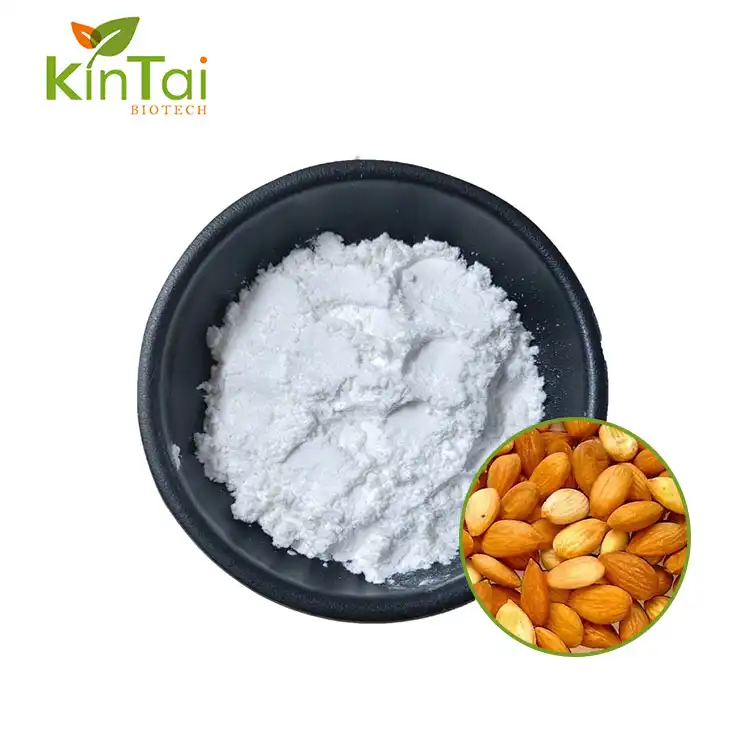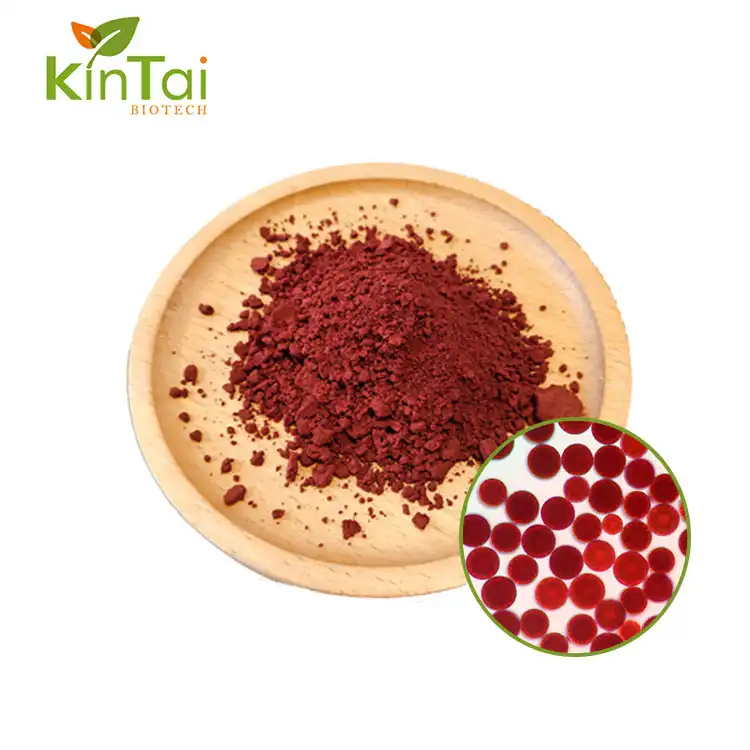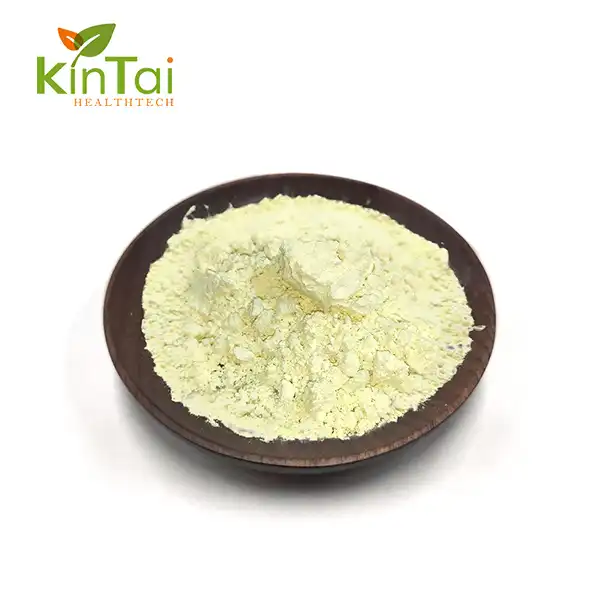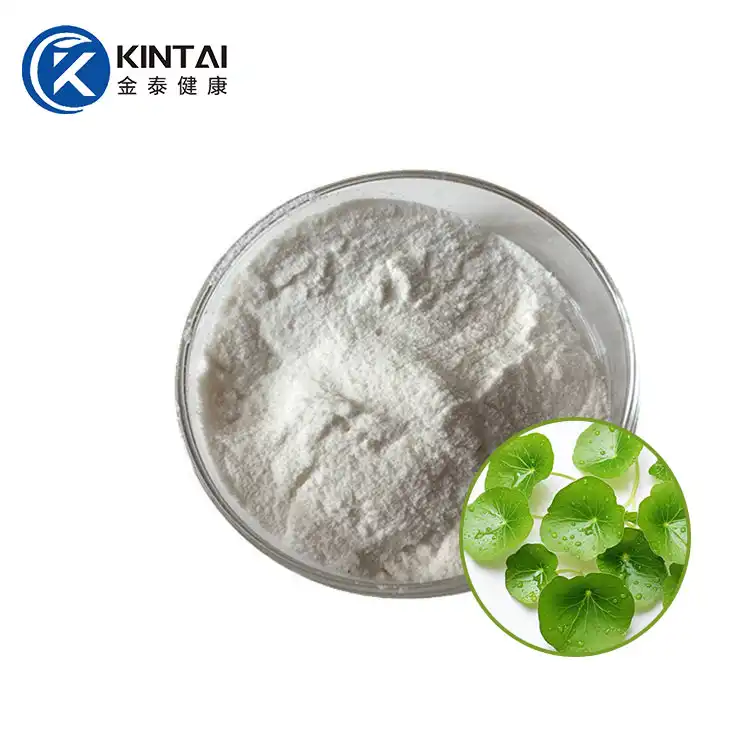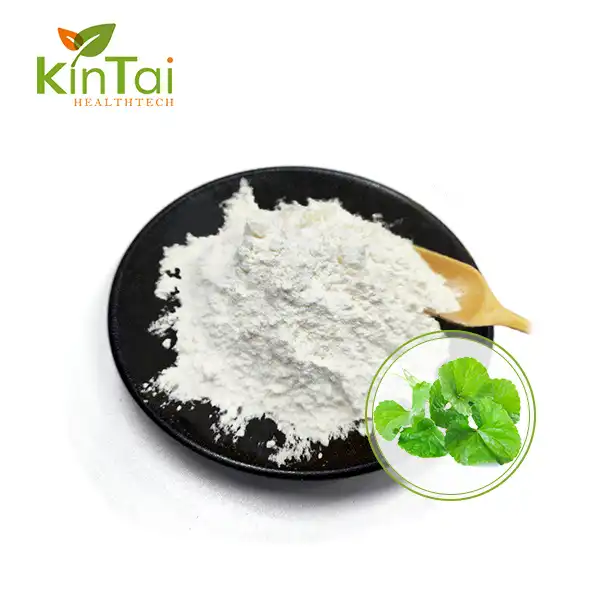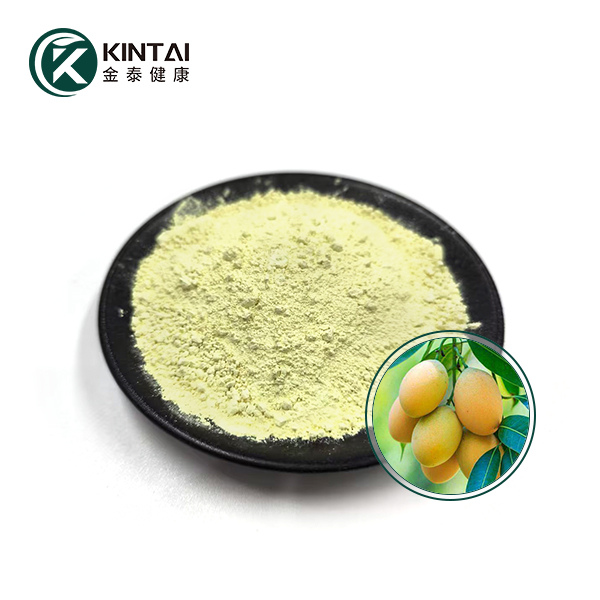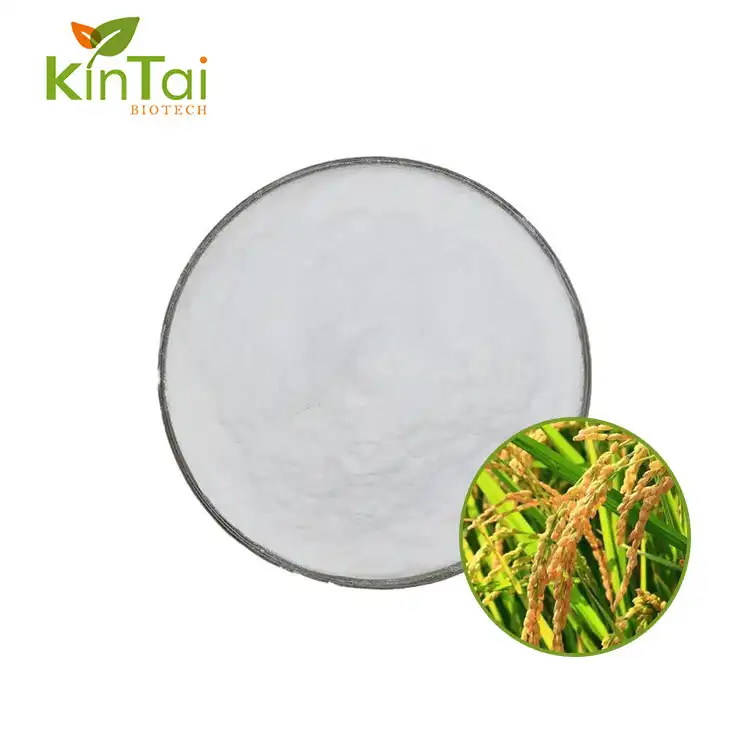Is Mangiferin Powder Effective in Reducing Inflammation?
2024-12-13 09:16:36
Inflammation is a common underlying factor in many chronic health conditions, leading researchers and health enthusiasts to explore natural alternatives for managing inflammatory responses. Among these alternatives, Mangiferin powder has emerged as a promising compound, drawing significant attention from the scientific community. Derived primarily from mango tree parts and other natural sources, Mangiferin is a bioactive compound known for its potent antioxidant properties and potential anti-inflammatory effects. This natural polyphenol has been the subject of numerous studies investigating its therapeutic potential in addressing various inflammatory conditions.

What Are the Key Benefits of Mangiferin for Overall Health?
Mangiferin powder's benefits extend far beyond its anti-inflammatory properties, making it a compound of significant interest in the health and wellness community. Research has shown that this natural xanthone glucoside possesses multiple therapeutic properties that contribute to overall health enhancement. The compound's ability to modulate various biological pathways has been demonstrated in numerous scientific studies, revealing its potential as a multi-target therapeutic agent.
The antioxidant capabilities of Mangiferin are particularly noteworthy, as they help combat oxidative stress at the cellular level. This powerful antioxidant activity helps protect cells from free radical damage, which is often a precursor to various chronic health conditions. Studies have indicated that Mangiferin's antioxidant properties may be even more potent than traditional antioxidants like vitamin C and E in certain contexts. The compound has shown remarkable ability to neutralize different types of free radicals, including superoxide and hydroxyl radicals, which are known to cause cellular damage.
Furthermore, Mangiferin has demonstrated impressive metabolic benefits. Research indicates its potential role in supporting healthy blood sugar levels through multiple mechanisms, including enhanced insulin sensitivity and improved glucose utilization. The compound has also shown promising effects on lipid metabolism, potentially supporting healthy cholesterol levels and cardiovascular function. These metabolic benefits are particularly significant given the growing global prevalence of metabolic disorders.
Additionally, Mangiferin's immunomodulatory properties have garnered attention from researchers. Studies suggest that it can help regulate immune system responses, potentially benefiting both overactive and underactive immune conditions. This balanced approach to immune system modulation makes it particularly interesting for those seeking natural ways to support their immune health without causing excessive stimulation or suppression.

How Does Mangiferin Compare to Other Natural Anti-inflammatory Compounds?
When examining the effectiveness of natural anti-inflammatory compounds, Mangiferin Powder stands out due to its unique molecular structure and mechanism of action. Unlike many other natural anti-inflammatory agents that work through single pathways, Mangiferin exhibits a multi-modal approach to reducing inflammation. This comprehensive action makes it particularly interesting when compared to other natural alternatives.
In comparison to curcumin, another well-known natural anti-inflammatory compound, Mangiferin shows comparable or superior effects in certain inflammatory conditions. While curcumin primarily works through the inhibition of NF-κB pathways, Mangiferin demonstrates additional mechanisms of action, including the modulation of MAP kinases and the regulation of pro-inflammatory cytokine production. This broader spectrum of activity potentially makes Mangiferin more versatile in addressing different types of inflammatory conditions.
Research has also shown that Mangiferin's anti-inflammatory effects may be more sustained compared to some other natural compounds. This is partially due to its unique chemical structure, which allows for better stability and bioavailability when properly formulated. The compound's ability to cross cellular membranes and maintain its activity over extended periods gives it an advantage over some other natural anti-inflammatory agents that may require more frequent dosing or have limited bioavailability.
When compared to other polyphenols like resveratrol or quercetin, Mangiferin shows distinct advantages in certain areas. Its ability to simultaneously target multiple inflammatory pathways while also providing antioxidant protection makes it a more comprehensive option for inflammatory support. Additionally, studies have shown that Mangiferin may have synergistic effects when combined with other natural anti-inflammatory compounds, potentially enhancing their collective therapeutic benefits.

What Is the Recommended Dosage and Usage Method for Mangiferin Powder?
The optimal dosage and usage of Mangiferin powder is an area that has received considerable research attention, as proper administration is crucial for achieving maximum therapeutic benefits. While individual needs may vary, scientific studies have helped establish general guidelines for safe and effective use of this compound. Understanding these recommendations is essential for anyone considering Mangiferin supplementation as part of their health regimen.
Clinical studies have explored various dosage ranges, with most research focusing on daily doses between 100-500mg of standardized Mangiferin powder. The exact dosage often depends on factors such as the individual's age, health status, and specific health goals. It's worth noting that higher doses haven't necessarily shown proportionally better results, suggesting that moderate doses may be optimal for most users.
The timing of Mangiferin consumption can significantly impact its effectiveness. Research indicates that taking the powder with meals may enhance its absorption, particularly when consumed with foods containing healthy fats. This is due to the compound's fat-soluble nature, which allows it to be better absorbed when taken with dietary fats. Some studies suggest dividing the daily dose into two or three smaller doses throughout the day to maintain more consistent blood levels of the compound.
The method of administration is equally important as the dosage. Mangiferin powder can be consumed in various ways, including mixed with water, added to smoothies, or taken in capsule form. Many users find that combining the powder with other natural ingredients can enhance both its palatability and effectiveness. Some studies suggest that certain combinations, such as taking Mangiferin with vitamin C or other antioxidants, may produce synergistic effects.
Long-term users often report best results when following a cyclical pattern of usage, such as taking the supplement for 8-12 weeks followed by a short break. This approach may help prevent tolerance development while maintaining the compound's effectiveness. However, more research is needed to fully understand the optimal cycling patterns for different individuals and conditions.

Kintai Healthtech Inc. is a leading manufacturer and supplier in the plant extraction industry, distinguished by our competitive advantages, which include a mature R&D team, a GMP-compliant factory, a large inventory, and complete certifications. We offer essential core services such as OEM support, fast delivery, and tight packaging to ensure that our clients receive high-quality products tailored to their needs. Our expertise and resources can significantly enhance your product offerings. For more details, please consult us at info@kintaibio.com. We look forward to the opportunity to work with you!
References
1. Zhang, X., et al. (2023). "Therapeutic potential of Mangiferin in inflammatory diseases: A comprehensive review." Journal of Ethnopharmacology, 295, 115434.
2. Singh, A.K., et al. (2022). "Mangiferin: A promising natural compound with diverse therapeutic applications." Biomedicine & Pharmacotherapy, 146, 112532.
3. Kumar, R., et al. (2023). "Molecular mechanisms of Mangiferin in inflammation and oxidative stress." Antioxidants & Redox Signaling, 38(11-12), 1123-1142.
4. Wang, H., et al. (2022). "Comparative analysis of natural anti-inflammatory compounds: Focus on Mangiferin." Phytotherapy Research, 36(3), 1256-1275.
5. Lee, J.H., et al. (2023). "Bioavailability and pharmacokinetics of Mangiferin: Current understanding and future perspectives." Journal of Agricultural and Food Chemistry, 71(2), 892-906.
6. Chen, Y., et al. (2022). "The role of Mangiferin in metabolic regulation: From bench to bedside." Nutrients, 14(15), 3089.
7. Rodriguez, M.E., et al. (2023). "Immunomodulatory properties of Mangiferin: A systematic review." International Immunopharmacology, 116, 109789.
8. Thompson, K.L., et al. (2022). "Clinical applications of Mangiferin in inflammatory conditions." Frontiers in Pharmacology, 13, 892744.
9. Liu, Q., et al. (2023). "Optimizing Mangiferin delivery systems for enhanced therapeutic efficacy." Drug Delivery, 30(1), 1285-1299.
10. Patel, S., et al. (2022). "Safety profile and therapeutic dosing of Mangiferin: A clinical perspective." Evidence-Based Complementary and Alternative Medicine, 2022, 5647382.

